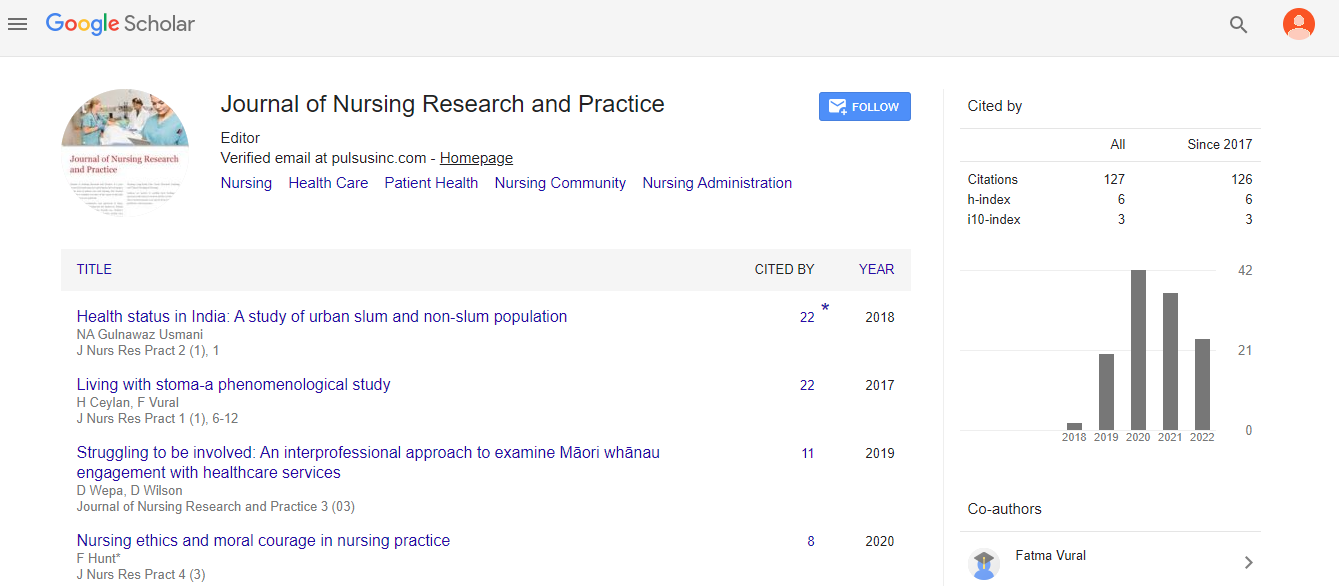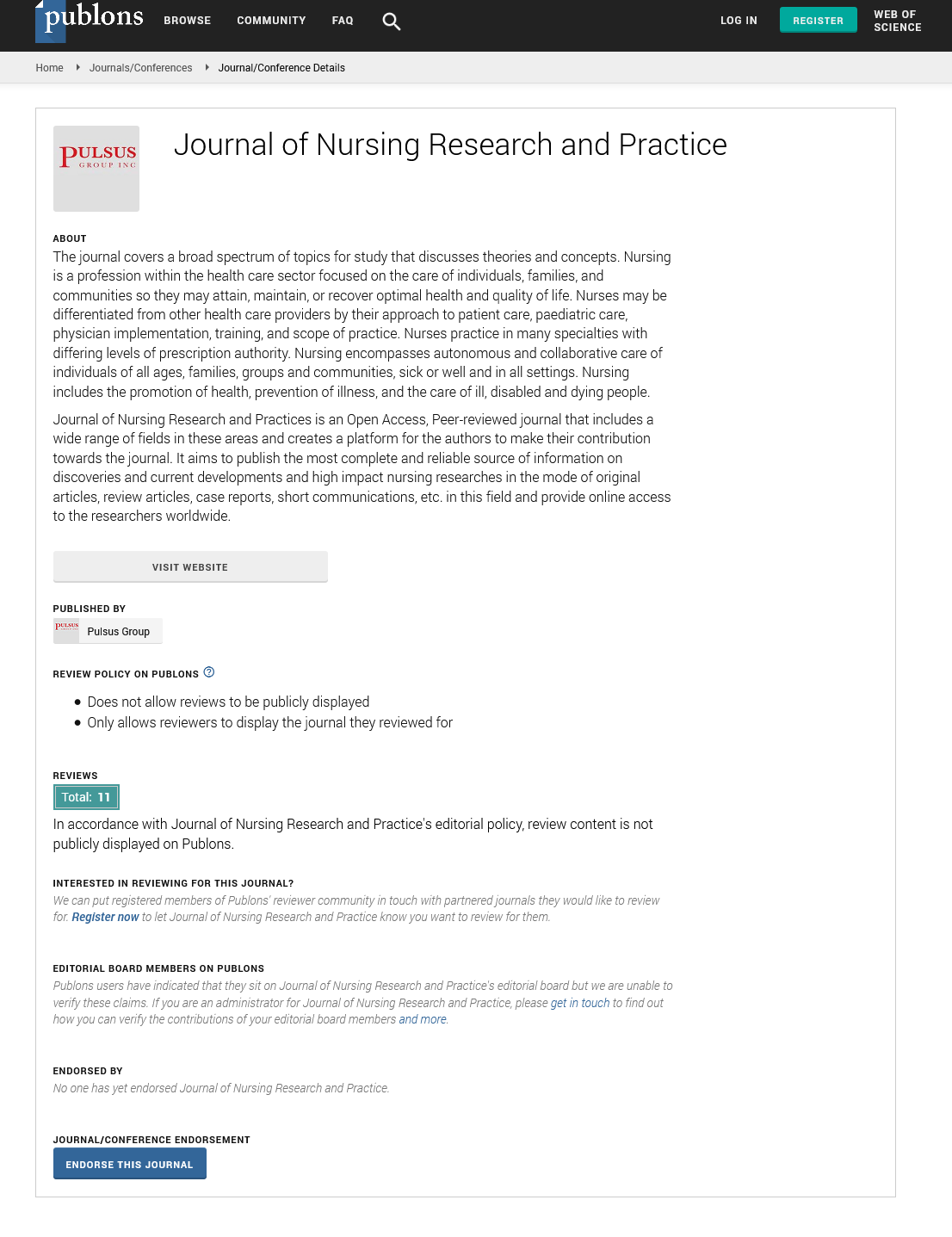
Sign up for email alert when new content gets added: Sign up
The challenges in managing Heart Failure with preserved Ejection Fraction (HFpEF)
Joint Event on World Nursing Education and Evidence Based Practice Conference & 4th International Heart Conference
April 22-23, 2019 Dubai, UAE
Samer Ellahham
Cleveland Clinic, UAE
ScientificTracks Abstracts: J Nursing Research and Practice
Abstract :
Heart failure is a life�threatening disease and addressing it should be considered a global health priority. Approximately half of all patients with Heart Failure have preserved Ejection Fraction (HFpEF) and, as life expectancies continue to increase in western societies, the prevalence of HFpEF will continue to grow. In contrast to Heart Failure with preserved Ejection Fraction (HFrEF), no treatment has been proven in pivotal clinical trials to be effective for HFpEF, largely because of the pathophysiological heterogeneity that exists within the broad spectrum of HFpEF. This syndrome was historically considered to be caused exclusively by left ventricular diastolic dysfunction, but research has identified several other contributory factors, including limitations in left ventricular systolic reserve, systemic and pulmonary vascular function, nitric oxide bioavailability, chronotropic reserve, right heart function, autonomic tone, left atrial function, and peripheral impairments. Multiple individual mechanisms frequently coexist within the same patient to cause symptomatic heart failure, but between patients with HFpEF the extent to which each component is operative can differ widely, confounding treatment approaches. This lecture focuses on our current understanding of the pathophysiological mechanisms underlying HFpEF, and how they might be mechanistically related to typical risk factors for HFpEF, including ageing, obesity, and hypertension.
Biography :
Samer Ellahham is a board-certified Internist, Cardiologist and Vascular Medicine Senior Consultant. He is a Fellow of the American College of Cardiology and key member in heart failure and transplant, adult congenital and pediatric cardiology, cardio-oncology and peripheral vascular disease sections. He is the Eminent Editor of The Journal of Cardiology & Cardiovascular Therapy. He has served as Chief Quality Officer for SKMC since 2009. His research includes innovation, digital healthcare solutions, telemedicine, block chain, patient experience and engagement, lean six sigma, change management, innovation, safety, risk management, KPI management, safe surgery, heart failure, molecular biology, genetics, cardiac imaging, sports and nutrition. He is a recognized world-leader in these fields.
E-mail: samerellahham@yahoo.com





